卫报:乌克兰反对派领导人入狱 2012欧洲杯面临外交危机
周一,越来越多的欧盟国家领导人表示,即使2012欧洲杯下月就要举行,他们也将加入德国的抵制行动,除非乌克兰释放被关押的反对派领导人尤利娅.季莫申科。2012欧洲足球锦标赛因此正在走向一场外交危机。
周日,德国总理默克尔说,如果乌克兰总统维克托.亚努科维奇不改变国内的人权现状,她与她的内阁成员将不参加在乌克兰进行的任何比赛。乌克兰与波兰今年共同主办该项赛事。
周一,欧盟委员会主席巴罗佐和审判委员长雷丁也表示他们不会去乌克兰。捷克总统克劳斯宣布取消雅尔塔的访问,而德国总统高克上周也取消了去雅尔塔参加中欧领导人峰会的行程。
欧盟委员会发言人称:“就目前的状况,巴罗佐无意去观看2012欧洲杯。”她将季莫申科如今的处境形容为“非常,非常严重的状况”。她还补充道:“这将发展为非常严重的情况”。
季莫申科是乌克兰前总理。去年10月她被判监禁7年,之后她的支持者称这是出于ZZ动机的判决。自4月20日,她在狱中绝食抗议。周五,有一些照片,显示她身上有瘀伤。季莫申科声称狱警殴打了她,还猛击了她的腹部。而乌克兰检察官则称,她的伤是自己造成的。
季莫申科目前被关押在乌克兰东部城市哈尔科夫。这里会是6月13日德国与荷兰的小组赛比赛举办地。周一,在见到季莫申科受伤的图片后,瑞典外交部召见乌克兰驻瑞典大使要求他们给出解释。
政局的动荡让欧足联非常尴尬。欧洲足球的执政机构希望赛事版图能够东扩,能够体现(此处省略若干字)独立的乌克兰所取得的进步。而如今的形势,很可能是亚努科维奇独自坐在他的VIP包厢里,而其他欧洲领导人都对他避而远之。
英格兰的三场小组赛比赛都会在乌克兰进行,其中两场在东部城市顿涅斯克,还有一场在基辅。英格兰和乌克兰被分在同组,6月19日他们会和东道主进行比赛。赛事从6月8日持续到7月1日,决赛也会在乌克兰首都基辅进行。英国外交部发言人说"形势还在持续观察中"。
前任欧盟部长丹尼斯.迈克沙恩对卡梅隆说:“应该明确的是,除非释放季莫申科并对她的背部伤病给予治疗,否则英国官员将不会出席2012欧洲杯。如果基辅方面拒绝听从欧盟的建议,他建议应该把英格兰的三场小组赛安排到邻国波兰进行。而保守党人,环境保护大臣查尔斯.坦诺克表示支持迈克沙恩的建议。
西欧国家的批评声引来了基辅方面强烈的回应。周日,外交部发言人奥列格.沃罗申谴责了柏林方面的冷战思维。其他官员则建议德国应该停止干涉乌克兰内政。
沃罗申说:“我不愿去想象,德国的政治家们还能重拾冷战时期的方法”,同时他还补充说,希望这种以抵制比赛的方式作为威胁只是一种“媒体炒作”。
沃罗申通过邮件告诉《卫报》:乌克兰遭遇了不公正的惩罚。我们的立场非常简单,2012欧洲杯是足球比赛,无关ZZ。不能抵制体育赛事来解决ZZ问题。
沃罗申还对德国与俄罗斯之间良好的关系给予了尖锐的评论。他说“德国在对待这个地区的其他国家的问题上采取了比对乌克兰更民主的方式,但每当有大兴体育赛事时,德国政客们总在扮演‘妈妈’的角色”。
迈克沙恩说乌克兰出于现在的困境就是咎由自取。他把对季莫申科的审判形容为“纯粹的ZZ报复,以确保在这个日益独裁的国家里听不到反对的声音。”他指出,季莫申科当政时,曾免于遭受亚努科维奇的指控。亚努科维奇曾在2004年乌克兰总统大选中作弊,却玩火自焚,引起了乌克兰国内的“橙色革命”。
亚努科维奇在2010年赢得选举。英国工业大臣说:“这不是讨论票箱里谁的票数胜出的问题,而是亚努科维奇把他的ZZ对手送进了监狱,这是让历史倒退。”
安德鲁.威尔森是资深的欧洲外交理事会研究院,他说:“乌克兰ZF完全不理解欧洲媒体的力量。很显然,他们没有预想到,去年下半年关押季莫申科,会在2012年夏天的欧洲杯期间让乌克兰陷入如此巨大的公关灾难”。他还补充说,乌克兰现在还冒着被冠以“怪物史莱克”的风险,而波兰则是“公主”。
威尔森说:“2010年当选的亚努科维奇会在今年下半年面对议会选举。这是在顿涅斯克盆地家族企业的一部分,也是讲俄语的东乌克兰地区工业的一部分。而这个家族企业,现在在ZZ机构中,善于运用传统的苏联式的手段。这些来自顿涅斯克盆地的家伙守着旧约的ZZ文化中,大规模地打击敌手,然后告诉你谁才是老大。但如果是在基辅,这么做就会产生严重的ZZ后果。”
由于亚努科维奇的政策,欧盟已经暂停了与乌克兰之间的联合协议。奥地利也抵制在雅尔塔克里米亚度假区进行的地区领导人峰会,一些波罗的海国家也可能会步其后尘。
德国已经低调地与亚努科维奇ZF谈判了数周,希望能带季莫申科到柏林的诊所进行治疗。德国医生一直在跟进对她的治疗,她正受到脊椎盘突出的折磨。
过了周末,少数德国政客提出要取缔乌克兰东道主身份的想法,改由奥地利或德国来承办比赛。离比赛开幕只有38天,这个想法不可能实现。但是欧足联官员却是有紧急备用的B方案,把乌克兰的比赛挪到波兰举行。但是B计划的进行引发了上周在乌克兰的四起神秘的爆炸事件,且都发生在季莫申科的家乡第聂伯罗彼得罗夫斯克,有27人在爆炸中受伤。
与此同时,欧洲议会绿党领导人丽贝卡.哈姆斯和丹尼.科恩-本迪特写信给欧足联主席及前法国队队长普拉蒂尼,要求欧足联要对乌克兰的ZZ现状表明立场。“对于在赛事开幕前乌克兰无法容忍的状况,现在欧足联和各国足协必须给出明确的公开声明。如果我们继续在哈尔科夫、基辅、利沃夫踢比赛,而季莫申科却被关在附近的监狱中,这就太荒谬了。”
本周末,普拉蒂尼表示,不能以“相比西欧的民主国家来说,乌克兰不够稳定”把乌克兰从锦标赛主办国名单上删除,而绿党领导人则写到:“必须澄清,欧足联和所有球员对于人权的侵犯和专制的态度都是零容忍。”
此外压力还来自于其他国家。周日,意大利外交部长朱利奥·特尔齐表示“越来越担心”季莫申科现状的,并且质疑乌克兰当局是否光明正大地处理这起案件。而上周日的《罗马每日邮报》上刊登了前总理贝卢斯科尼的信,将要求释放季莫申科的运动称为“ZZ战斗”。
贝卢斯科尼写道:“我仍然想劝服基辅当局,如果乌克兰能在人权发展道路上迈出这个决定性的一步,并以东道主身份出现在这样大型的体育盛事上,他们将因此获益良多。”
译文:
The Guardian | Euro 2012 faces diplomatic crisis over Ukraine's jailed opposition leader
The 2012 European Championships were heading towards a diplomatic fiasco on Monday after more EU leaders said they would join Germany in a boycott of the event next month unless Ukraine freed the opposition leader, Yulia Tymoshenko.
On Sunday, Angela Merkel said that she and her cabinet would not attend any games played in Ukraine, which is co-hosting the tournament with Poland, unless the human rights situation under President Viktor Yanukovych improved.
On Monday, the president of the European commission, José Manuel Barroso, and Viviane Reding, the commissioner for justice, said they would not be travelling to Ukraine either. The Czech president, Vaclav Klaus, announced he was cancelling a visit to Yalta, while Germany's president, Joachim Gauck, called off a trip to the same central European leaders' summit last week.
An European commission spokeswoman said that "as things stand" Barroso had "no intention of going" to Euro 2012. She described Tymoshenko's predicament as "a very, very serious situation". "It gives rise to very serious concern," she added.
Tymoshenko, the former prime minister, was jailed for seven years in October after what her supporters say was a politically motivated show trial. She has been on hunger strike since 20 April. On Friday, photos appeared showing bruises on her body. Tymoshenko claims prison guards assaulted her and punched her in the stomach. Ukrainian prosecutors say her injuries were self-inflicted.
Tymoshenko is currently being held in Kharkiv, in eastern Ukraine. The city is the venue for Germany's first group stage match against the Netherlands on 13 June. On Monday, after seeing the photographs of Tymoshenko's bruises, Sweden's foreign ministry summoned the Ukrainian ambassador and demanded an explanation.
The political debacle is a huge embarrassment for Uefa. Football's governing body in Europe had hoped that expanding the tournament eastwards would showcase the progress made by independent Ukraine since the collapse of communism. Instead it is now possible that Yanukovych could sit in the VIP box on his own, with European leaders shunning him.
All three of England's group-stage matches take place in Ukraine, with two in the eastern city of Donetsk and one in Kiev. England is in the same qualifying group as Ukraine, and plays the host nation in Donetsk on 19 June. The final of the tournament, which runs from 8 June to 1 July, also takes place in Kiev, Ukraine's capital. The Foreign Office said it was "keeping the situation under review".
Denis MacShane, the former Europe minister, said David Cameron should make it clear that there will be no official British presence at Euro 2012 unless Tymoshenko is released and given medical treatment for her severe back pain. If Kiev refuses to heed EU concerns, England's three matches should be played in neighbouring Poland, he suggested. Charles Tannock, a Tory MEP for London, said he supported MacShane's proposal.
The criticism from western Europe has provoked a sharp response from Kiev. On Sunday, foreign ministry press spokesman Oleg Voloshin accused Berlin of cold-war thinking. Other officials suggested that the Germans should refrain from meddling in Ukraine's internal affairs.
"I wouldn't like to think that the statesmen of Germany are capable of reanimating the methods of the cold war," Voloshin said, adding he hoped the threat of a boycott was a "newspaper canard".
Voloshin told the Guardian in an email that Ukraine was being unfairly punished. "Our position is very simple. Euro 2012 is about football not politics. It's impossible to solve any political issues through boycotting sporting events."
In an apparent swipe at Germany's cosy relationship with Russia, Voloshin said that "other countries in the region" allegedly had more problems with democracy than Ukraine, but that German politicians "kept mum" whenever they staged large sporting events.
MacShane said Kiev only had itself to blame for the unfolding mess. He described Tymoshenko's trial as "purely political vindictiveness to ensure there is no coherent opposition to this increasingly authoritarian regime." He pointed out that when in power, Tymoshenko had refrained from prosecuting Yanukovych, after his attempts to cheat during Ukraine's 2004 presidential election backfired and sparked the country's Orange Revolution.
Yanukovych won power in 2010. "It is Yanukovych who is putting the clock back by jailing his political opponents, rather than arguing with them or outvoting them in the ballot box," the Labour MP said.
Andrew Wilson, senior fellow at the European Council on Foreign Relations, said the Ukrainian government has little understanding of how the western media works. It had apparently not foreseen that by jailing Tymoshenko late last year, the country would face a major PR disaster during the summer of Euro 2012, he said. He added that Ukraine now risked being branded "Shrek" to Poland's "Princess".
Wilson said that Yanukovych, who was elected in 2010 and faces parliamentary polls later this year, was part of a clan from Donbas, a Russian-speaking industrial part of eastern Ukraine. This clan – now in government – was more comfortable using traditional Soviet methods, he said. "These guys from Dombas have this Old Testament political culture of smiting your enemies massively and showing who is boss. But if you do this in Kiev there are foreign policy consequences."
The EU has frozen conclusion of an association agreement between Brussels and Kiev because of Yanukovych's policies. Austria is also boycotting the summit of regional leaders in the Crimean resort of Yalta, with Baltic states expected to follow suit.
Germany had been negotiating quietly for weeks with the Yanukovich government, seeking to get Tymoshenko to a Berlin clinic for medical treatment. German doctors who have been allowed to treat her say she is suffering from a herniated spinal disc.
Over the weekend, a handful of German politicians floated the idea that Ukraine should now forfeit its host role, with its matches staged in Austria or Germany instead. With only 38 days to go until the tournament kicks off this is unlikely to happen. But Uefa officials do have an emergency plan B to transfer Ukraine's games to Poland. Work on plan B has intensified following four mysterious explosions last week in the Ukrainian city of Dnipropetrovsk, Tymoshenko's home town. Some 27 people were injured.
Last week, meanwhile, Rebecca Harms and Dany Cohn-Bendit, the Greens leaders in the European Parliament, wrote to Michel Platini, the Uefa head and former French national captain, demanding that the association take a stand on the Ukrainian political situation. "There has to be a clear public statement now from Uefa and the national football associations on the intolerable conditions in Ukraine before the tournament opens," they wrote. "It's inconceivable that we follow the tournament in the stadiums in Kharkiv, Kiev or Lvov while Yulia Tymoshenko sits in prison nearby."
Platini said at the weekend that Ukraine could not be barred from hosting the championship just because it was "less stable" than west European democracies. "It must be clear that there is no tolerance for human rights abuses and arbitrary justice in the football associations and among the players," the Greens leaders wrote.
Pressure is mounting in other countries too. On Sunday, Italy's foreign minister, Giulio Terzi, expressed "increasing worry" over Tymoshenko's situation and asked Ukrainian authorities to shed "full light" on the case. In a letter published on Sunday in the Rome daily Messaggero, Silvio Berlusconi, the former prime minister, called the campaign to free Tymoshenko "a political battle".
Berlusconi wrote: "I remain convinced that Kiev authorities have a lot to gain if Ukraine presents itself as host of a large sports event with a decisive step forward in the field of human rights."
- 上一篇:家族争产风波引赌王健康质疑
- 下一篇:欧洲杯热身赛—自信的克罗地亚轻取爱沙尼亚
相关推荐
随机专题



 您现在的位置:
您现在的位置: 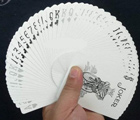
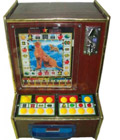 探寻雪豹老虎机出奖规律
探寻雪豹老虎机出奖规律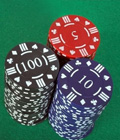 澳门赌场百家乐玩法秘籍
澳门赌场百家乐玩法秘籍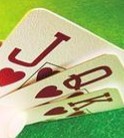 不用算牌法也能战胜二十一点的秘籍介绍
不用算牌法也能战胜二十一点的秘籍介绍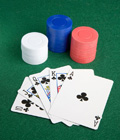 四招赢钱德州扑克策略
四招赢钱德州扑克策略


